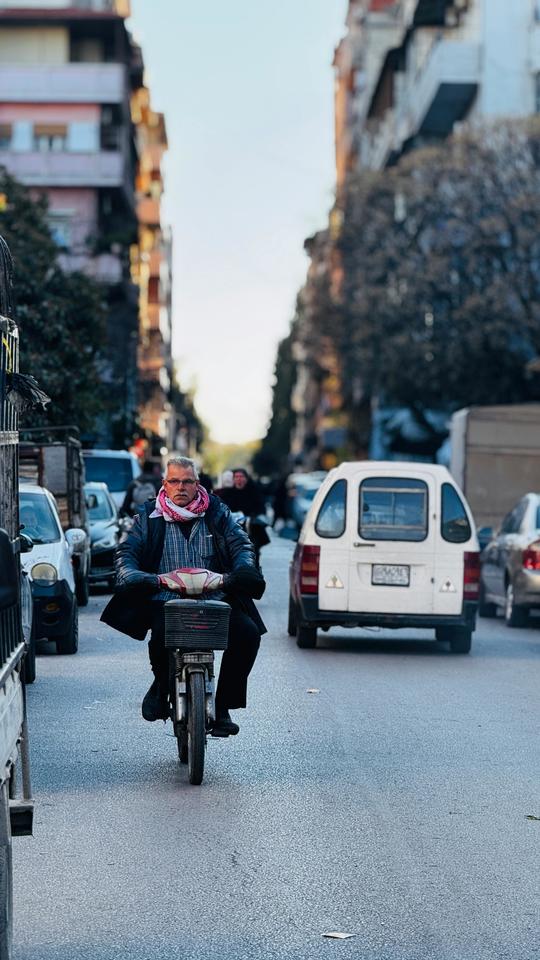By Sally Sharif, University of British Columbia
(The Conversation) – Syria’s rebel leader, Ahmed al-Sharaa, has defended his decision to fill his cabinet with wartime loyalists and delay constitutional and electoral processes, describing these moves as pragmatic necessities for the country’s fragile transition.
At the same time, he has called for the disarmament of all rival factions, especially the Kurds in northern Syria. In a recent Al-Arabiya interview, al-Sharaa outlined a vision for a presidential system, with appointed, not elected, delegates shaping Syria’s new constitution before elections could be held.
His blueprint leaves little room for international oversight, as he insisted the United Nations and foreign powers should play only a minimal role in the process.
Many observers are focusing on Hayat Tahrir al-Sham (HTS), the factional winner of Syria’s protracted war, and its troubling history of ties to al-Qaida and ISIS.
Questions abound: Will the group’s past alliances shape its governance? Can a group with such a violent legacy chart a path to inclusive peace?
These questions are vital, but my research with colleagues at the universities of Notre Dame and Pittsburgh suggests that regimes emerging from rebel victories tend to share strikingly similar governance challenges. The question isn’t just whether Syria will chart a different course — it’s whether it can defy the grim lessons of history.
Rebel victories
Rebel victories tend to follow a predictable script: a regime born of war seeks to solidify power under the guise of stability.
The Taliban’s takeover of Afghanistan in 1996 offers a stark example. After their military triumph, they penned a constitution in private, with input solely from Islamic scholars. No civil society entities were invited to the table. The resulting document prioritized ideology over inclusivity, and laid the groundwork for a repressive regime.
Rebel victories are not mere regime changes; they are seismic upheavals. Unlike negotiated transitions or elite-led coups, these regimes arise from violent conflict.
Our research has found that since 1946, 45 countries have experienced one or more episodes of rebel victory, leaving behind weak states with fragile institutions and deep societal divides. Governance in these situations often becomes synonymous with survival, with leaders prioritizing the consolidation of authority over fostering broad-based stability.
Cases of rebel victory underline a troubling trend: rebel leaders often use constitutional processes to centralize power rather than create institutions that can manage grievances or prevent renewed violence.
Expropriation of private property
Our research indicates that constitutions drafted by rebel regimes frequently allow for selective enforcement of property rights, granting broad powers to expropriate under vague justifications. For instance, constitutions of rebel regimes are more likely to allow the government to expropriate private property for “general public purposes,” often without compensation or legal recourse.
Most victorious rebels use constitutional changes to maintain property insecurity as a strategy for consolidating power in an uncertain environment. After the fall of the Derg regime in Ethiopia in 1991, the country’s rebel regime used constitutional provisions to expropriate land for “public use,” selectively targeting marginalized communities and dissenting regions. It consolidated power under the guise of reform while undermining property rights and economic liberalization.
While such measures may temporarily stabilize power, they also fuel grievances, erode trust in state institutions, and often sow the seeds of future conflict.
A small number of rebel regimes, however, take a different path, opting for negotiated constitutional reform. By including rival groups in the process and extending political, social and civic rights to marginalized populations, these regimes can lay the groundwork for more inclusive governance and lasting peace.
Between 1989 and 2012, 56 per cent of comprehensive peace accords included provisions for constitutional reform. Such reforms often serve as nation-building mechanisms in newly formed states, or promote peace among divided communities. By creating a written, negotiated framework for governance, constitutions incentivize non-violent engagement and provide citizens and international entities with tools to hold rebel incumbents accountable.

Photo of Homs by Waseem Istanbuli: https://www.pexels.com/photo/urban-street-scene-in-homs-syria-with-cyclist-30478295/
Helping rebel regimes
There are two ways the global community can influence what happens in rebel regimes — by being punitive and/or by incentivizing. When the Taliban won in Afghanistan in 2021, the international community quickly imposed sanctions on the new rebel regime and froze Afghan assets abroad.
In our analysis, we found that sanctions and arms embargoes — examples of punitive actions — do not significantly reduce the likelihood of civil wars recurring in rebel regimes.
Instead of punitive measures, the Global North in particular should try to influence Syria’s new leaders with incentivizing measures, such as offering economic aid in exchange for peace agreements and facilitating peace-building processes.
The good news for the international community is that, unlike the Taliban, al-Sharaa has shown an openness to collaborate with the West. This presents a critical opportunity to encourage Syria’s rebel leaders to adopt inclusive governance practices, which, in the long run, will reduce the risk of renewed conflict.
Instead of calling for the complete disarmament of rival factions and drafting a new constitution solely by delegates of the rebel winners, al-Sharaa should sign a peace agreement with rival factions which includes the terms for a negotiated, inclusive constitutional reform process.![]()
Sally Sharif, Lecturer in Political Science, University of British Columbia
This article is republished from The Conversation under a Creative Commons license. Read the original article.


 © 2026 All Rights Reserved
© 2026 All Rights Reserved